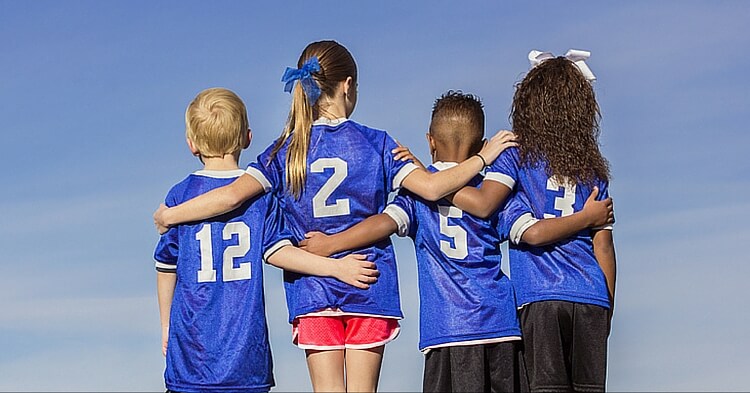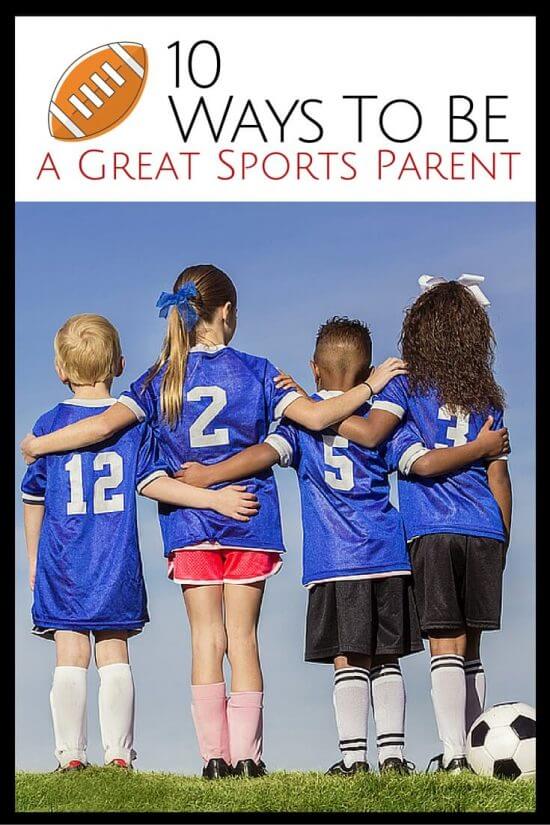10 Ways To Be a Great Sports Parent

Youth sports is currently getting a bad rap. From the in-bleacher parent brawls, excessive athlete training bordering on abuse and the drive to make every player a professional, it’s no wonder that youth sports participation has taken a major dive in recent years.
However, it’s been proven that kids that play sports are more disciplined, get better grades, are healthier and understand concepts like teamwork. Not to mention it’s a great way for them to make new friends!
So, how do you take advantage of all the benefits of a sport without succumbing to the pitfalls of being a sports parent?
1. Research the sport.
Spend some time on the internet looking up information on clinics and/or camps where your child might be able to try out the sport before making a huge commitment. Talk to other parents about what their experience has been.
2. Pick a sport that fits your family.
What is your budget for a sport? Can you commit to one that is equipment heavy like ice hockey or would soccer be a better fit? Is your family able to handle travel sports or would a recreational program work better? Sports require a bit of sacrifice, but it’s up to you on how much that is.
3. Be supportive, not pushy.
Shouting instructions from the bleachers or spending the car ride home rehashing every play is not being supportive, it’s annoying. Plus, I am willing to bet your player is tuning you out anyway!
4. Curb your expectations.
Very few youth athletes go on to a college scholarship or the pros. Don’t ruin a fun experience with your own unrealistic agenda.
5. Let the coach be the coach.
Even if you were once a first string quarterback in the NFL, you are NOT the coach. Have a problem with his or her technique? Observe the 24-hour rule before approaching them.
6. Get to know the coaches.
I am not talking about stalking them on Facebook or showing up at their house uninvited, but from a safety standpoint, it’s a good idea to know who is spending so much time with your kid.
7. Learn the phrase “I love to watch you play” and use it often.
It’s really the only thing you will ever need to utter regarding your son or daughter’s performance.
8. Align yourself with supportive, positive parents.
There’s nothing worse than having to deal with the negativity of a team’s sour grapes parent, hothead, or braggart, so, don’t. Find the parents who are there to cheer on the team and make the experience a fun one.
9. Speaking of cheering, most sports are team ones, so be sure to support everyone.
You get to be a good example of sportsmanship.
10. If they want to quit, let them quit.
This is a tough one for some parents, especially ones who love the sport and have played themselves. Ultimately, it’s your child’s decision whether they want to continue or not. If they want to quit, have them finish out their commitment and move on!
Having a child who plays sports can be extremely rewarding if you go in with your eyes open and your player’s best interests at heart. It can be fun, challenging and a great learning opportunity but it all starts with you.
Read more posts about Sports and Parenting
PIN IT FOR LATER:

This post was written by Sharon Enck exclusively for BonBon Break Media, LLC.




